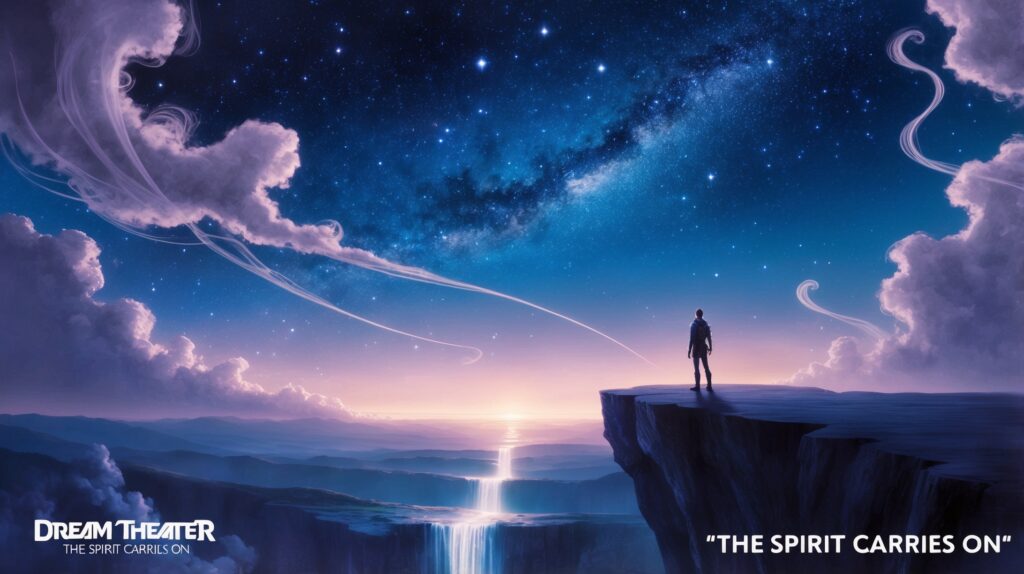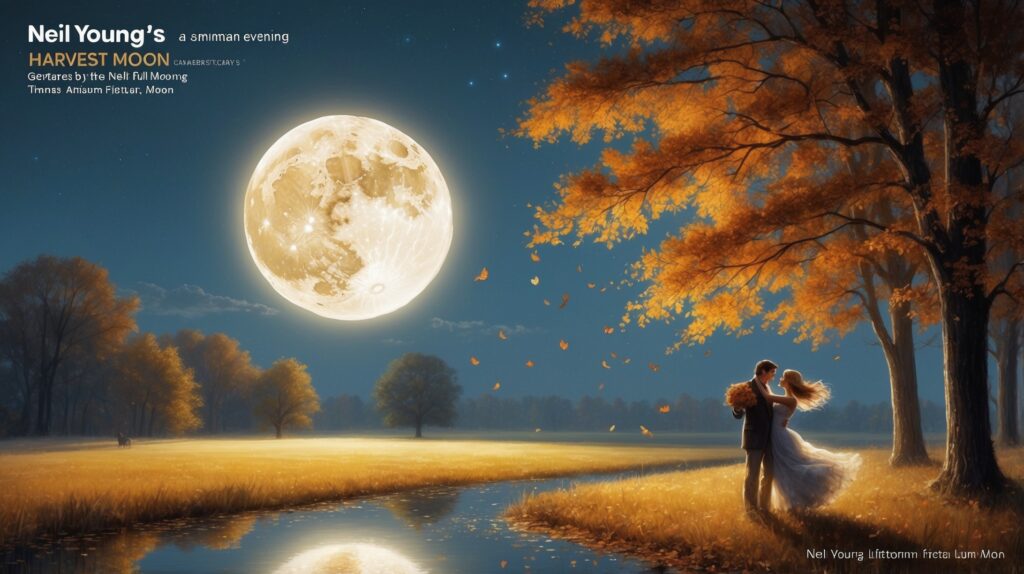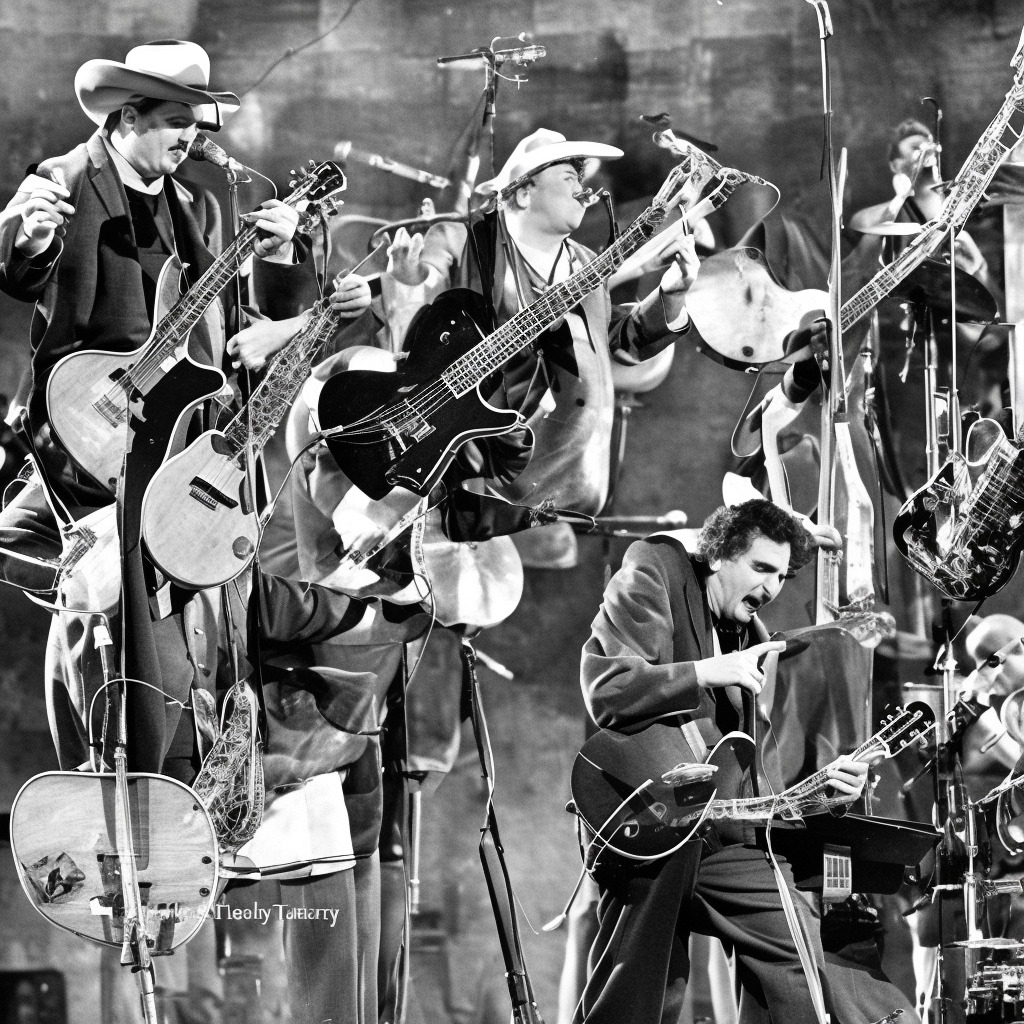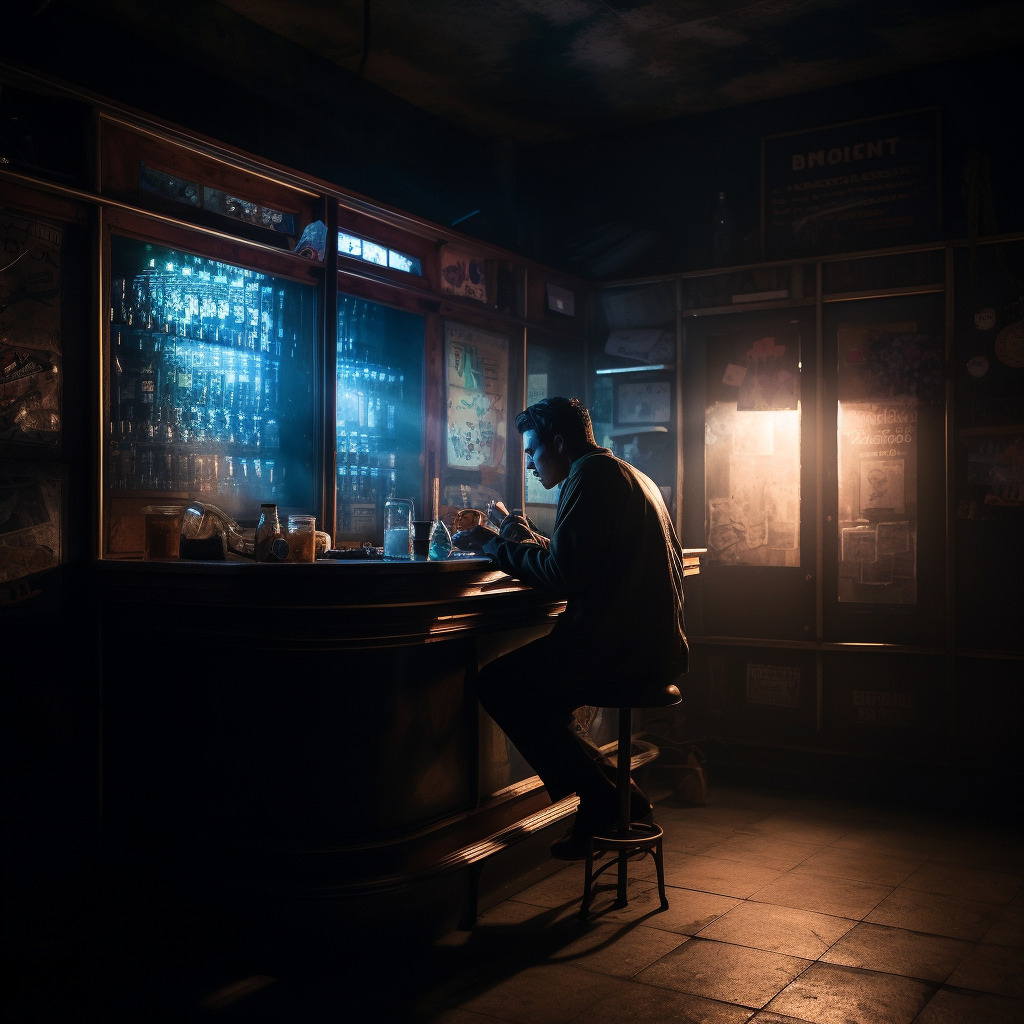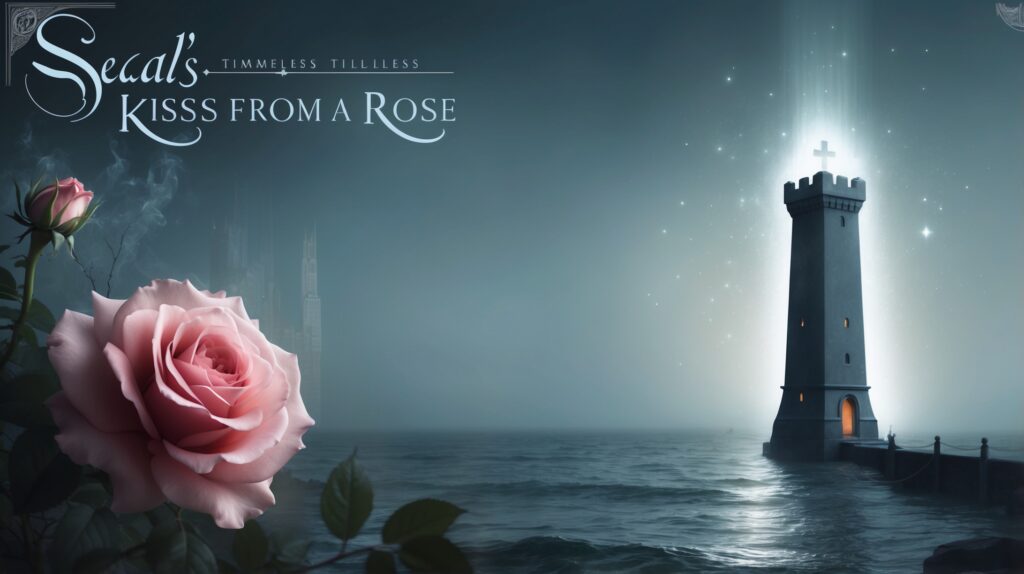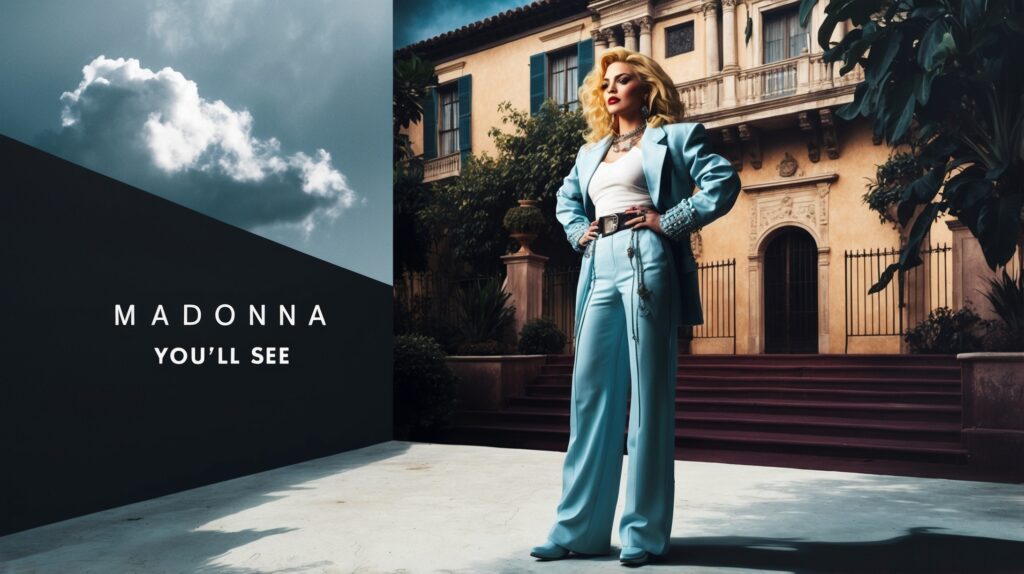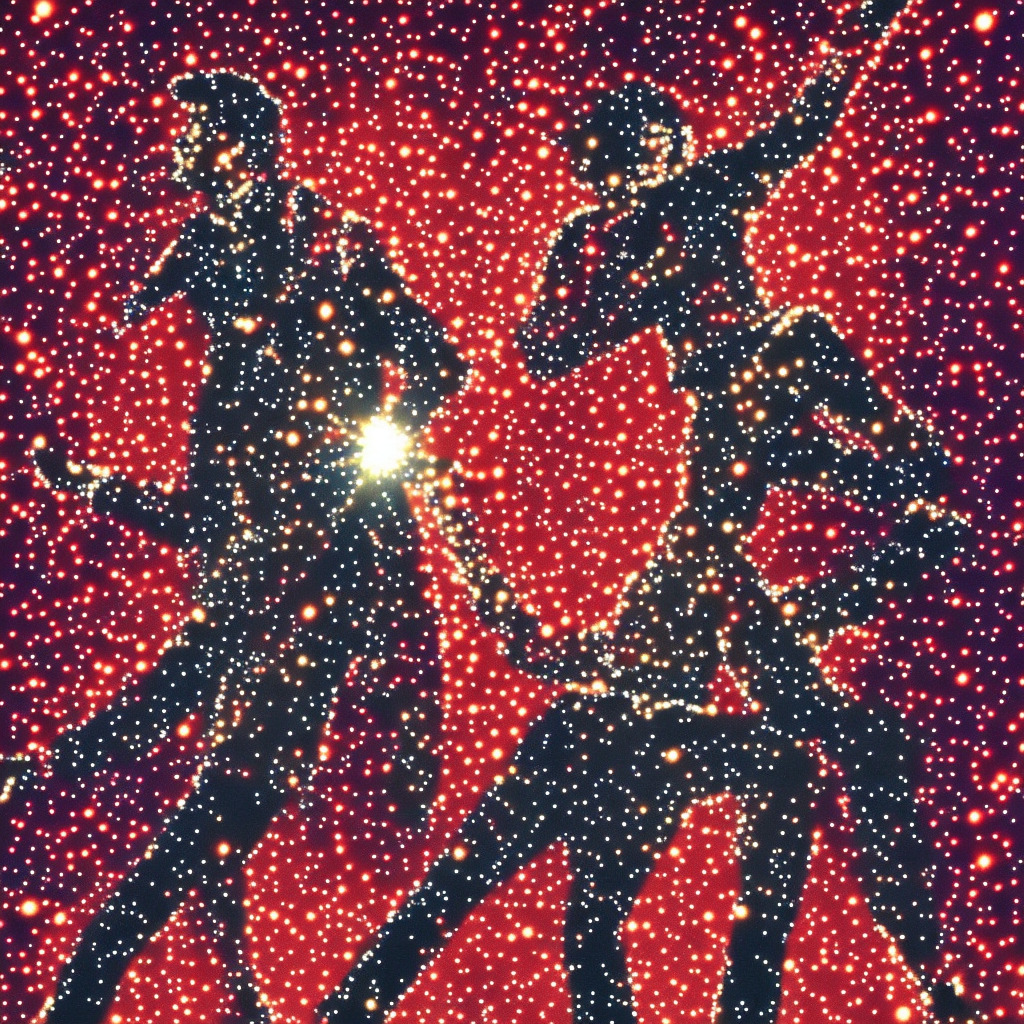Exploring the Evolution of Dream Theater: The Progressive Titans Behind ‘The Spirit Carries On’
Discover Dream Theater’s role in the progressive metal scene, their evolution, and the era that sparked ‘The Spirit Carries On’.
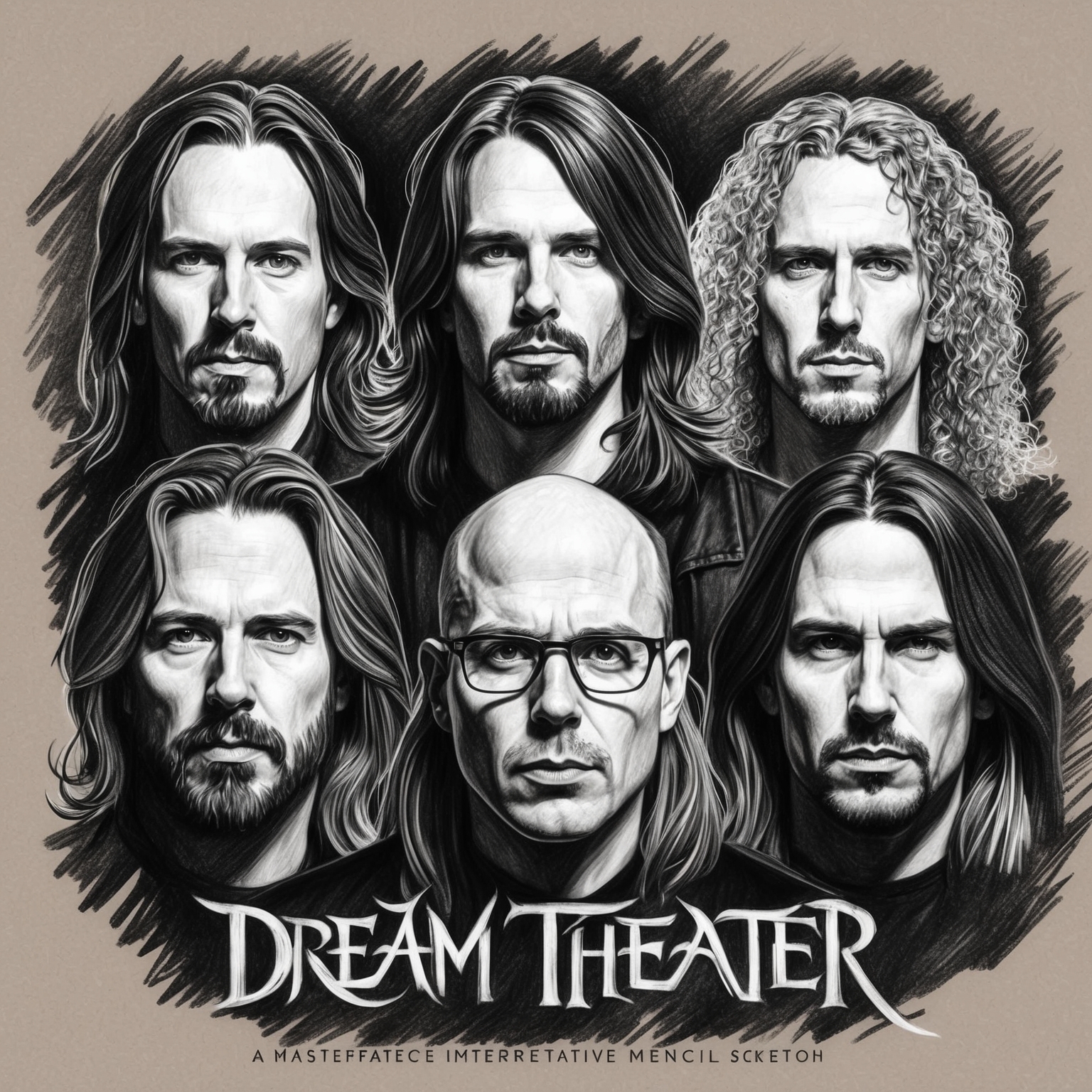
Dream Theater, formed in 1985 and renowned for their technical proficiency and intricate compositions, has long held a revered status in the progressive metal scene. The band was originally founded by guitarist John Petrucci, bassist John Myung, and drummer Mike Portnoy while they were students at Berklee College of Music. Over the years, the band’s lineup has evolved, but its core commitment to pushing musical boundaries has remained steadfast. ‘The Spirit Carries On’, a track from their 1999 album ‘Metropolis Pt. 2: Scenes from a Memory’, captures the essence of Dream Theater’s blend of conceptual depth and instrumental mastery.
The late ’90s were a pivotal time for Dream Theater. As they sought to branch out from their initial fame achieved with albums like ‘Images and Words’, they embarked on an ambitious creative endeavor with ‘Scenes from a Memory’. At the heart of crafting ‘The Spirit Carries On’ were the lyrical themes of existential exploration, a narrative thread that coexists with the band’s sweeping soundscapes. During this period, Dream Theater’s dynamic consisted of Petrucci, Myung, Portnoy, keyboardist Jordan Rudess, and vocalist James LaBrie, each bringing a unique flair to the band’s collective genius.
The song’s initial release came at a time when the progressive genre was experiencing a resurgence, with audiences yearning for music that was both intellectually and emotionally engaging. In crafting ‘The Spirit Carries On’, Dream Theater drew inspiration from the titans of classic rock, while infusing their signature virtuosic style. This collaboration of influences and innovative direction is emblematic of the band’s longstanding philosophy: to mold music that transcends the ordinary and resonates on a deeper level, capturing and defining its era.
The Genius Behind the Music: John Petrucci
John Petrucci, Dream Theater’s virtuoso guitarist and co-founder, crafted “The Spirit Carries On” with his signature blend of technical precision and emotional depth, reinforcing his status as a leading force in progressive metal.
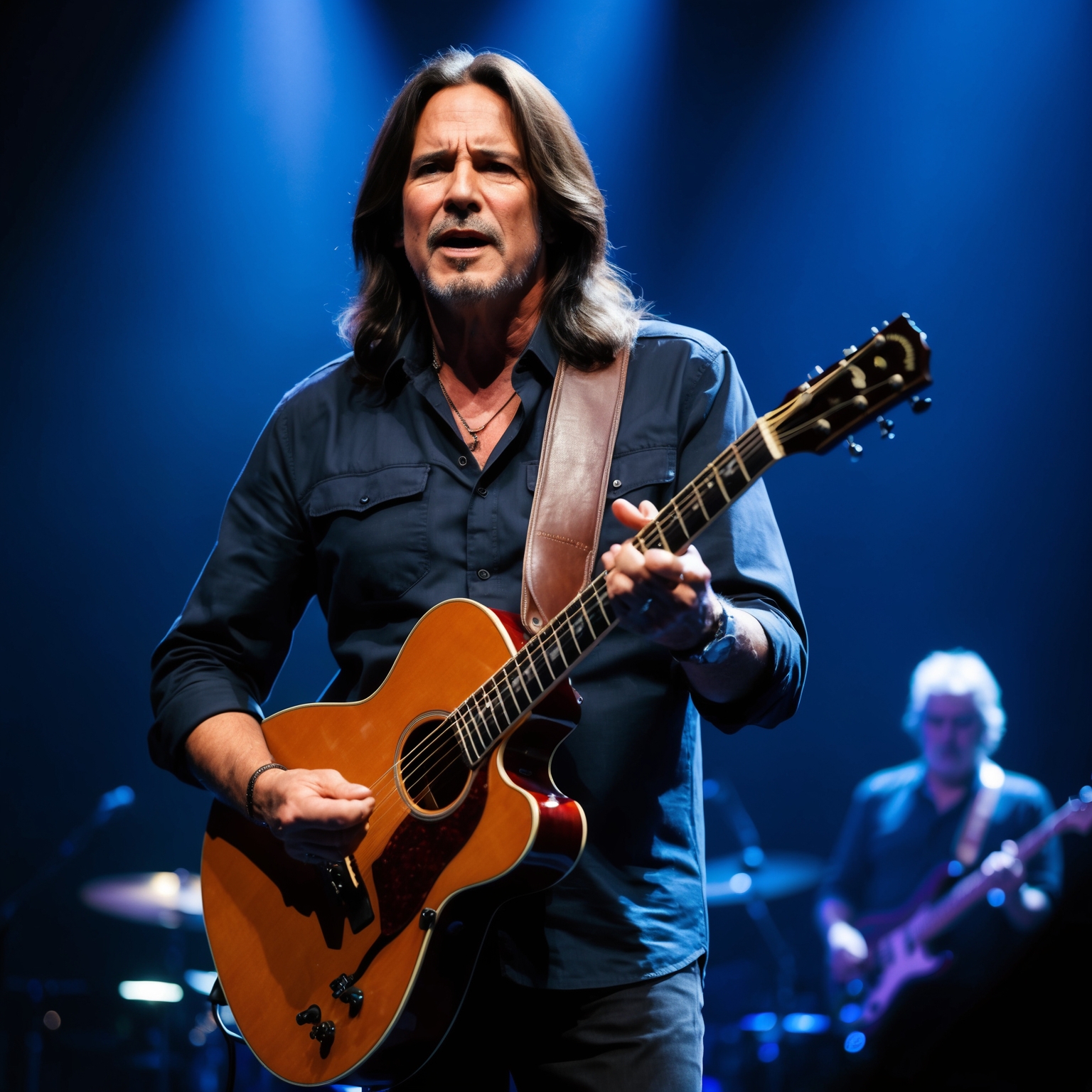
John Petrucci, the composer behind Dream Theater’s “The Spirit Carries On,” is a prolific figure in the realm of progressive metal. Born on July 12, 1967, in Kings Park, New York, Petrucci is revered not only as a composer but also as a virtuoso guitarist, widely recognized for his technical proficiency and expressive playing. He co-founded Dream Theater in 1985 with friends from the Berklee College of Music, where he studied briefly before fully committing to his music career. Over the decades, Petrucci has garnered numerous accolades, establishing a formidable reputation that extends beyond his work with Dream Theater.
Petrucci’s musical style is heavily influenced by a diverse range of genres, including classical, rock, and jazz fusion. He is noted for his intricate compositions that often feature complex time signatures and elaborate instrumental passages. Influences like Steve Morse and Al Di Meola are evident in his work, yet Petrucci has carved out a unique identity that is instantly recognizable to his fans. His compositions often marry technical prowess with an emotional depth that resonates with listeners, making his work impactful and engaging.
In “The Spirit Carries On,” Petrucci’s role was pivotal, shaping the song’s profound narrative and emotional resonance through his composition. His deep involvement in the song’s creation ensured a harmonious blend between the musical and lyrical elements, underscoring the themes of life, death, and the afterlife. The orchestral arrangements and soulful guitar work that mark this track exemplify Petrucci’s ability to evoke emotion, supporting the song’s introspective lyrics and contributing to its success as a standout piece in the album “Metropolis Pt. 2: Scenes from a Memory.” These elements highlight Petrucci’s mastery over both the guitar and songwriting, further cementing his legacy within the genre.
Recognition and Renditions of ‘The Spirit Carries On’
The Spirit Carries On’ may not have collected traditional awards, but its recognition among fans, critics, and influential covers by other artists attest to its influential legacy.
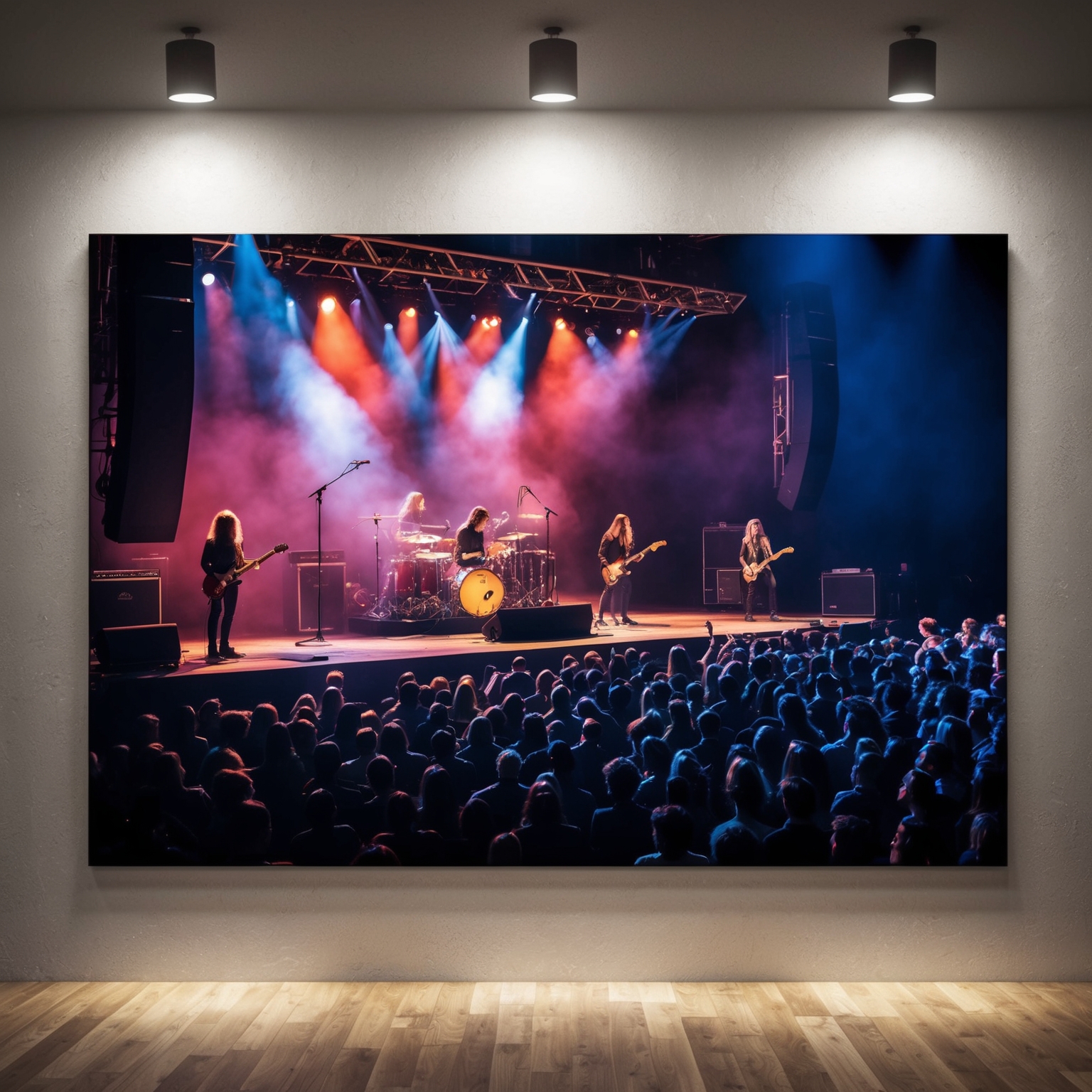
In the realm of progressive rock and metal, Dream Theater’s ‘The Spirit Carries On’ stands out not only for its musical mastery but also for the recognition it has garnered over the years. While the song itself has not collected notable awards in the traditional sense, it has certainly accumulated a wealth of accolades from both critics and dedicated fans. The track is often heralded as one of the most lyrically heartfelt and musically compelling pieces in the band’s expansive catalog. The song’s philosophical themes of life, death, and rebirth resonate strongly, leading many progressive rock enthusiasts to consider it a genre-defining anthem.
One of the most interesting aspects of this song’s legacy is the breadth of artists who have chosen to cover it. Artists from diverse musical backgrounds have attempted to capture its emotional and musical depth, bringing their unique interpretations to the piece. Notable among these covers is that by progressive rock band Transatlantic, who infused their distinctive style while maintaining the song’s original essence. These covers have introduced ‘The Spirit Carries On’ to varied audiences, further amplifying its impact and broadening its reach beyond devoted Dream Theater fans.
While ‘The Spirit Carries On’ might not boast appearances in mainstream movies, video games, or TV shows, its presence is nonetheless felt through fan tributes and live performances. These performances showcase the song’s powerful narrative, keeping it alive in the memory of both old listeners and new audiences discovering its magic. Such enduring presence speaks volumes about the song’s influence and the timeless message it conveys.
The Reception and Legacy of Dream Theater’s ‘The Spirit Carries On’
The Spirit Carries On’ may not have topped mainstream charts, but its long-term impact within the progressive music community cemented it as a classic, resonating beyond traditional commercial success.
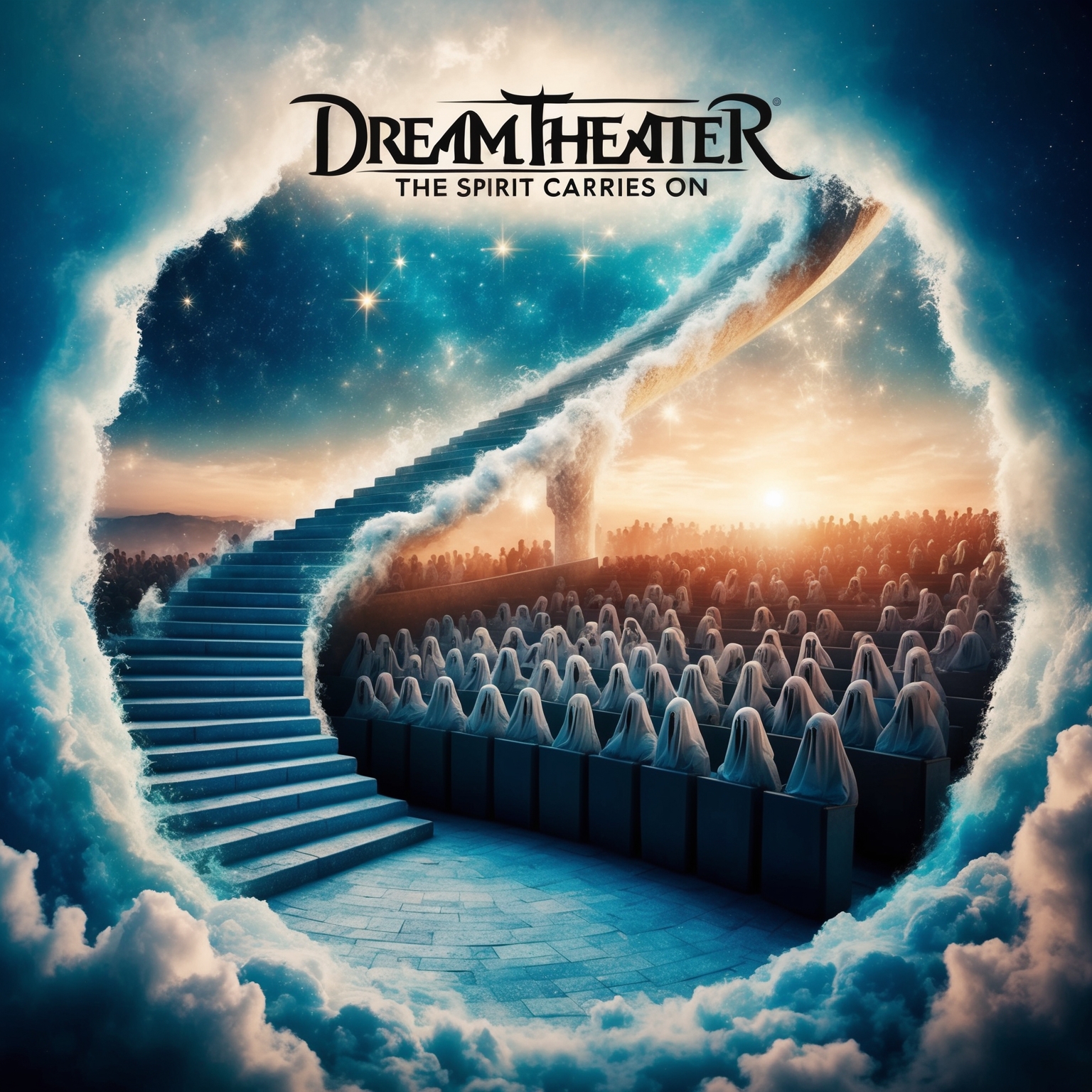
Released as part of Dream Theater’s 1999 concept album Metropolis Pt. 2: Scenes from a Memory, ‘The Spirit Carries On’ wasn’t initially a chart-topping sensation, but it achieved something arguably more enduring: a deep resonance with fans and musicians alike. While it didn’t make a blistering debut on any major music charts, the song quickly became a cornerstone piece, contributing significantly to the album’s widespread acclaim. Its legacy was built on emotional depth and musicianship rather than commercial hits.
In terms of initial chart presence, ‘The Spirit Carries On’ played a somewhat under-the-radar role compared to mainstream singles of the time. However, its impact inside the progressive rock and metal communities overshadowed many chart performances, serving as a cult favorite that strengthened Dream Theater’s devoted fan base. The song has been performed consistently during tours, underlining its importance in their discography.
From a marketing standpoint, the song never had a standalone campaign typical of pop releases. Nevertheless, the integration of its thematic and musical context into Scenes from a Memory allowed it to permeate popular culture gradually. Fan forums and online discussions still buzz with analysis and admiration of its lyrics and composition, revealing its enduring presence in the band’s creative legacy—often dissected for its haunting message and powerful delivery. Despite the absence of traditional chart success, its influence persists as a cult classic among fans of progressive music.
Visual Interpretations and Live Performance Legacy
Though ‘The Spirit Carries On’ lacks an official music video, its live performances and fan-made visual tributes amplify its emotional and thematic depth, enhancing the song’s legacy.
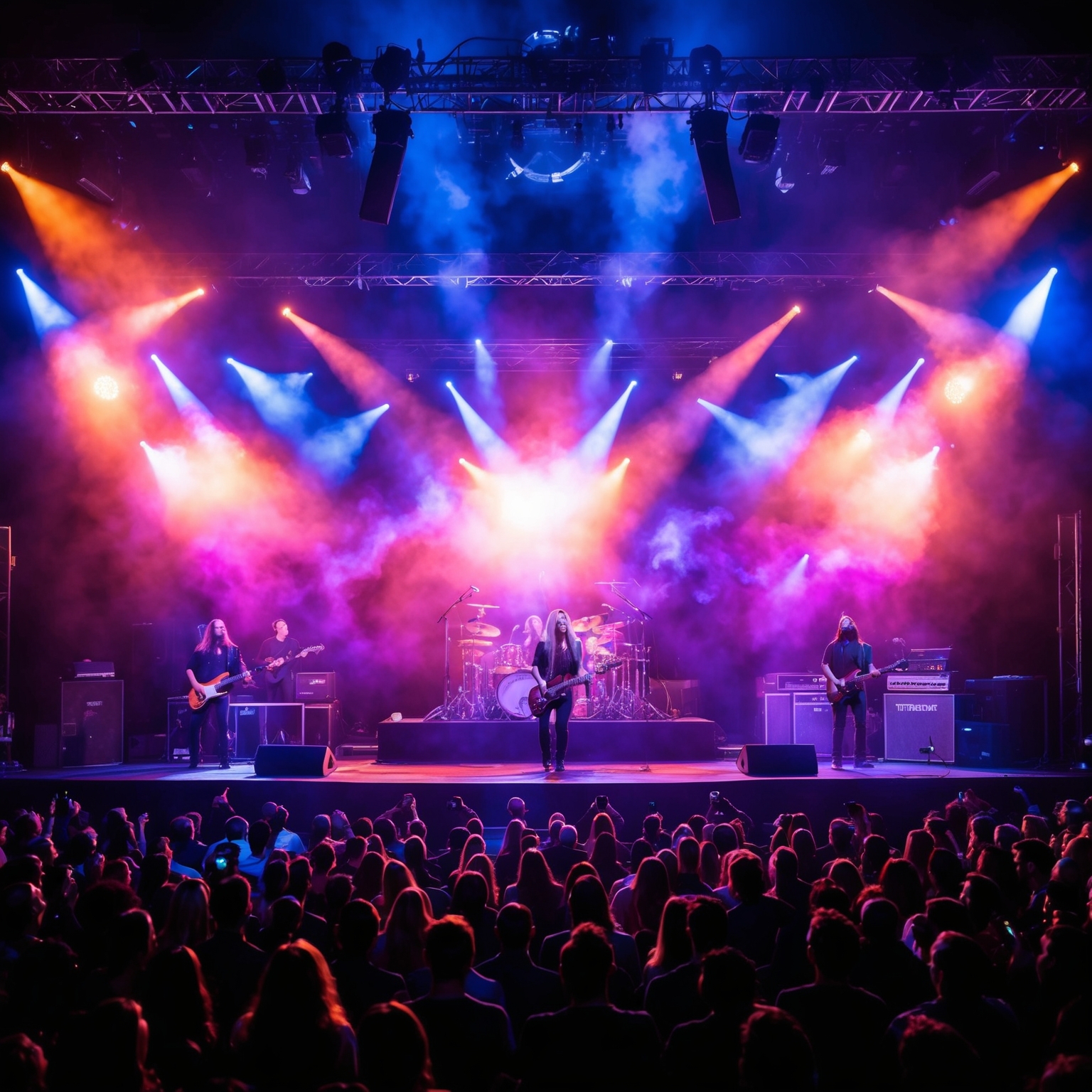
While ‘The Spirit Carries On’ by Dream Theater does not have an official music video, the song has carved a rich legacy through its live performances and fan-made tributes. Live renditions of the song, particularly from their ‘Metropolis 2000: Scenes From New York’ concert DVD, hold a special place in the hearts of fans. These performances capture the emotional depth and musical complexity that Dream Theater is famous for, allowing the audience to connect with the song’s profound themes in an immersive environment. The live versions showcase the band’s instrumental prowess and James LaBrie’s evocative vocal delivery, bringing the studio recording’s haunting narrative to life.
The absence of an official music video has also inspired numerous fan tributes and interpretations over the years. These fan-made videos, often shared on platforms like YouTube, utilize audiovisual storytelling to explore the song’s themes of mortality and the afterlife. Some fans focus on the narrative elements of the song, incorporating imagery of outer space, celestial bodies, and ethereal landscapes to convey the sense of transcendence and continuity that the song implies. This grassroots creation mirrors the emotional impact and connection that Dream Theater’s music fosters among listeners.
The critical reception of these visual interpretations varies but mostly reflects admiration for the ingenuity and devotion of the fan community. Critics and fans alike appreciate how these visualizations extend the song’s reach and allow for a multi-sensory experience. The live performances particularly receive high praise for preserving the authenticity of the original composition, making them an indispensable component of Dream Theater’s rich video heritage.
Dissecting the Musical Anatomy of ‘The Spirit Carries On’
The Spirit Carries On’ is a showcase of Dream Theater’s musical evolution, featuring intricate time signatures, melodic depth, and emotional resonance. It highlights the band’s shift towards thematic storytelling within their discography.
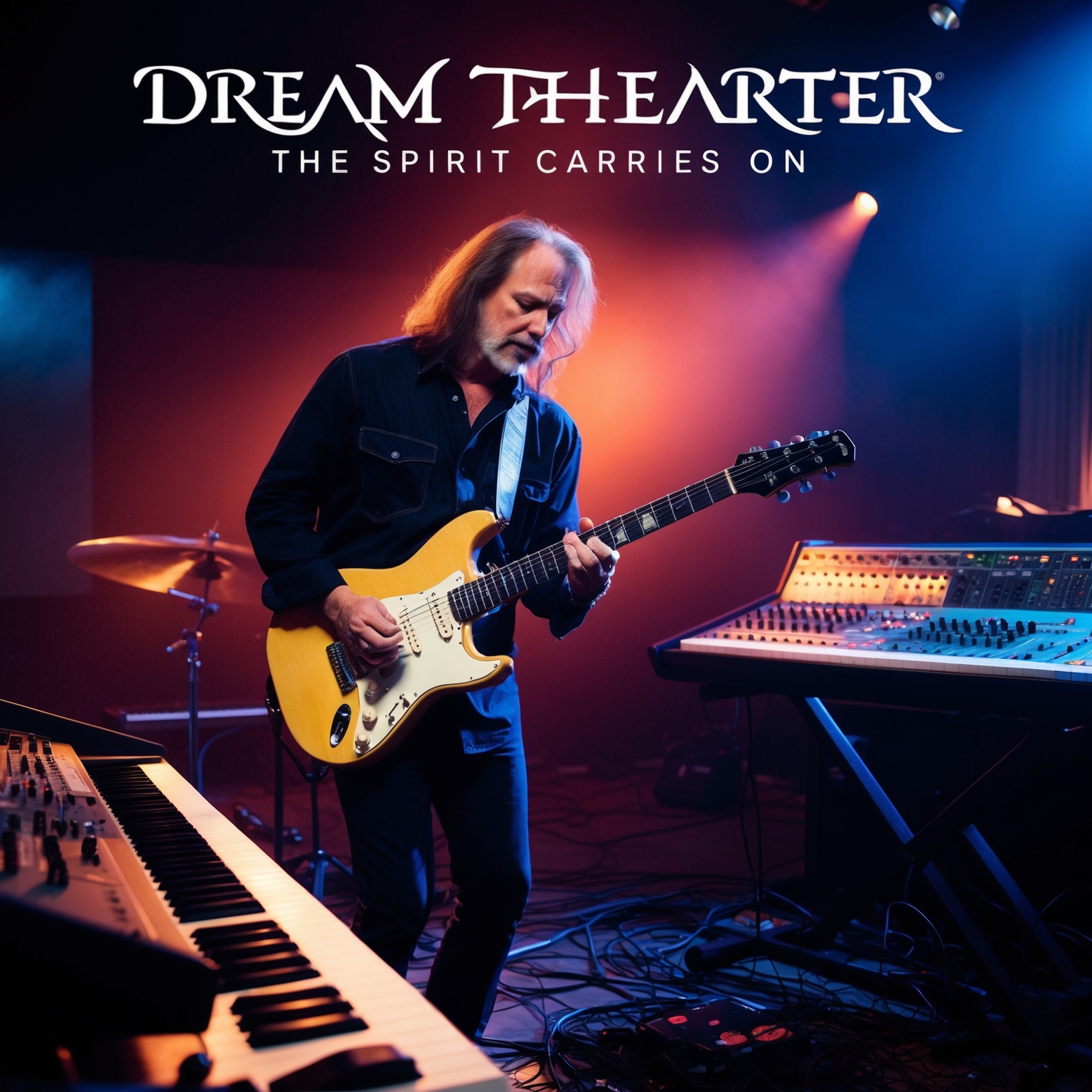
‘The Spirit Carries On’ by Dream Theater is a mesmerizing journey through progressive rock elements, delivering both complexity and emotional depth. The song is primarily written in the key of E major, which brings a warm and uplifting resonance that aligns perfectly with its introspective and existential themes. The song navigates through various chord progressions, employing a sophisticated combination of major and minor chords to evoke a sense of dynamic tension and release.
The tempo of the song is set at a moderate pace of around 74 beats per minute, giving it a reflective yet grandiose feel. The rhythm integrates both 4/4 and 7/8 time signatures, typical of Dream Theater’s intricate musical style. This sophisticated interplay creates an ebb and flow that mirrors the lyrical contemplation of life after death.
Melodically, the song is a beautiful tapestry woven with piano, guitar, and symphonic elements. John Petrucci’s ethereal guitar solos and harmonious riffs serve as the backbone, while Jordan Rudess’s keyboard work adds layers of sonic depth, enhancing the song’s ambient and haunting atmosphere. The drums, played by Mike Portnoy, offer a steady yet dynamic underpinning, interacting seamlessly with the bass to drive the song forward.
Comparatively, ‘The Spirit Carries On’ marks a defining moment in Dream Theater’s discography. Situated within the critically acclaimed album ‘Metropolis Pt. 2: Scenes from a Memory,’ it showcases the band’s evolution towards more conceptual and thematic storytelling. This song contrasts with their earlier works, which leaned more heavily into the technical prowess and complex instrumentation typical of progressive metal. Here, they refine those techniques to serve a cohesive narrative purpose, indicating their growth in thematic maturity.
An interesting anecdote from the recording is that the band was determined to create an emotional connection with listeners, reportedly spending considerable time perfecting the song’s soundscapes to ensure they encapsulated the essence of the concept album. Under the deft production of Mike Portnoy and John Petrucci, ‘The Spirit Carries On’ became a profound statement of musical and philosophical depth.
Exploring Existential Questions Through ‘The Spirit Carries On’
This section delves into the philosophical themes and narrative style of Dream Theater’s ‘The Spirit Carries On’, exploring its existential questions and literary devices.
Why are we here?
Where do we go when we die?
What lies beyond
And what lay before?
Is anything certain in life?
They say, “Life is too short”,
“The here and the now”
And “You’re only given one shot”
But could there be more,
Have I lived before,
Or could this be all that we’ve got?
If I die tomorrow
I’d be all right
Because I believe
That after we’re gone
The spirit carries on
…
******* This Lyrics is NOT for Commercial use *******

‘The Spirit Carries On’ by Dream Theater invites listeners on an introspective journey, delving into the profound existential questions that have intrigued humans for centuries. The lyrics open with a universal inquiry into the origins and purpose of life, reflecting a philosophical pursuit that resonates deeply across cultures and eras. The questions asked — ‘Where did we come from?’ and ‘Why are we here?’ — set a contemplative tone, exploring themes of life, death, and the mysteries of existence.
Throughout the song, there’s a narrative of questioning and seeking understanding, a personal existential exploration that aligns with the broader themes often present in progressive rock music. The song is told from a first-person perspective, enhancing its relatability and emotional depth. The choice of perspective allows listeners to place themselves within the narrative, making the philosophical ponderings feel personal and immediate, contributing to the song’s emotive impact.
The lyrics are accentuated by literary devices such as rhetorical questions and repetition, enhancing the contemplative nature of the song. The use of questions prompts listeners to engage actively with the lyrics and to reflect on their interpretations of life and death. This introspective nature, combined with themes of reincarnation and spirituality, aligns the song both with Dream Theater’s repertoire and with broader cultural narratives, showcasing the band’s penchant for weaving intricate themes through their music.
? Did you know The Spirit Carries On wasn’t a chart-topper but is a fan favorite for Dream Theater fans? It’s existential rock at its finest! ✨ #DreamTheater #ProgRock #FunFact #MusicTrivia tinyurl.com/bdps5wm5
Click to Tweet

